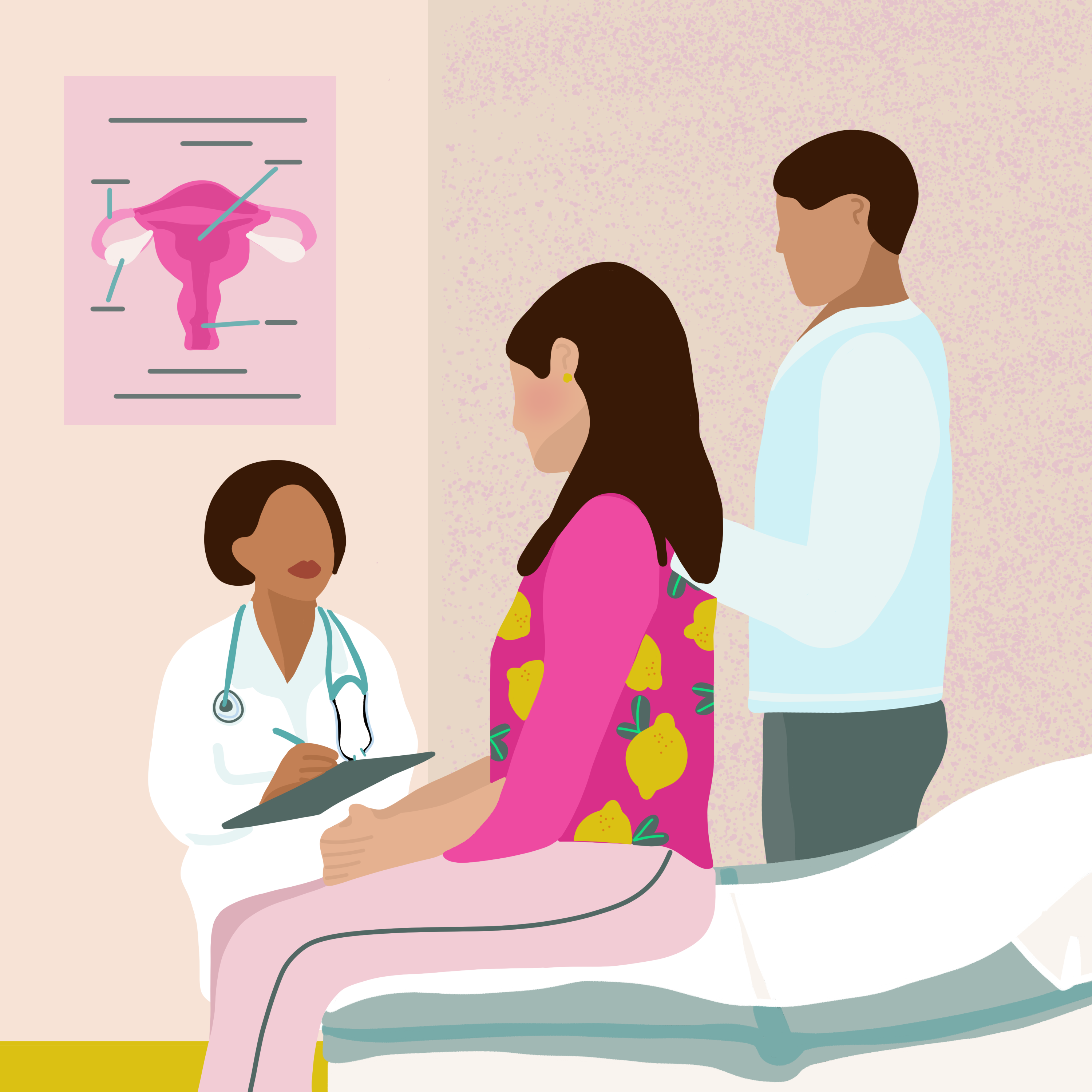
Deciding to have a baby is a momentous decision. And while you can technically hop under the sheets and start trying anytime, it’s a good idea to schedule a preconception visit beforehand. “I’d recommend visiting a healthcare provider a couple of months before trying to conceive – or several months before if you have a pre-existing medical condition,” says Mary Jane Minkin, M.D., a clinical professor in the Department of Obstetrics, Gynecology, and Reproductive Sciences at the Yale University School of Medicine.
At this preconception visit, your doctor will assess your health history, evaluate any medical concerns, and give you advice for a forming a healthy pregnancy. Think of the appointment as an “ask me anything” session to pick your doctor’s brains. (Tip: Write down the questions beforehand so you don’t forget anything!) Here are 11 questions to consider asking your Ob-Gyn – because before you know it, you may have a baby growing in your womb!
How long will it likely take me to get pregnant?
Of course, your doctor can’t predict exactly when you’ll conceive. Some couples get pregnant on their first try, while others won’t conceive after years of having regular unprotected sex. But your doctor may have some general predictions based on your age, health history, and past conception experience.
When should I stop birth control?
You can’t always get pregnant immediately after stopping birth control. Hormonal birth control pills, for example, may alter your cycle for several months after coming off of them – and same with the NuvaRing and Patch. Similarly, if you have an IUD, you’ll want to discuss when to remove the T-shaped device.
Will my health conditions affect my fertility?
According to Dr. Minken, some medical conditions may affect your ability to get pregnant. These include polycystic ovarian syndrome (PCOS), endometriosis, thyroid disorders, and even STDs. And when it comes to your partner, issues with sperm count, motility, or morphology may make conception difficult. Your doctor is the best person to gauge the situation and offer solutions.
How will my medications affect my fertility?
Some medications, including drugs for high blood pressure and epilepsy, may decrease your chances of conceiving. What’s more, certain over-the-counter and prescription drugs may harm the baby once you get pregnant (for example, NSAIDs, steroids, some antidepressants and antipsychotics, and thyroid medication). Review safety concerns with your doctor, who may switch out your drugs or advise you against using certain herbal remedies.
Should I take vitamins or supplements?
Prospective mothers should start taking folic acid supplements three-six months before trying to conceive. Dr. Minken says folic acid lessens the risk of neural tube defects and some birth defects. Your doctor might also recommend prenatal vitamins, especially if you seem to be lacking in a certain nutrient.
Should I change my diet/ exercise routine/ other lifestyle habits?
Did you know that being overweight or underweight can decrease your fertility? An unideal weight can also lead to pregnancy complications like gestational diabetes, high blood pressure, C-section, and miscarriage. Excessive exercising, drinking alcohol, and smoking cigarettes can also negatively impact your fertility and pregnancy. Have an open conversation with your doctor about your lifestyle habits, and ask if you need to make changes before trying to conceive.
Do I need any vaccinations?
Getting sick during pregnancy puts your health – and the health of your unborn child – at risk. Protect your little one from serious illness by staying up-to-date on vaccines. If you’re not already immune, your doctor will give you the measles, mumps and rubella (MMR) and chickenpox vaccines before conceiving, since these live viruses aren’t safe for pregnant woman. The seasonal flu vaccine, tetanus/diphtheria/pertussis shot (Tdap), and the hepatitis B vaccine can be taken during pregnancy.
Should I get another doctor?
Not all gynecologists have certifications in obstetrics, which is the field of pregnancy and childbirth. Ask your doctor if he/she is qualified to deal with pregnancy (you probably don’t know unless the issue hasn’t been brought up during past gynecologist appointments). If not, ask for recommendations for local obstetricians.
Do I need genetic testing?
You and your partner may decide to do genetic testing to see if you’re carriers of any hereditary genetic conditions, including spinal muscular atrophy, cystic fibrosis, Tay-Sachs disease, and more. If the results come back positive, your doctor can help weigh the risks of pursuing a natural pregnancy. One way to prevent passing the condition to offspring would be undergoing in vitro fertilization (IVF) with preimplantation genetic diagnosis (PGD). This lets parents test embryos for these genetic conditions.
Why can’t I conceive?
If you’ve been trying to conceive for a year with no results (or six months if you’re over age 35), you’re likely dealing with infertility. This condition affects one in eight American couples today. Your doctor will assess you and your partner to determine the cause of infertility, then she’ll try to cure the infertility with medication or by treating underlying conditions.
What should I do after getting a positive pregnancy test?
Many couples have no idea what to do after learning they’re having a baby. Should they go straight to the obstetrician, or wait until the fetus is old enough to show up on an ultrasound? Your doctor can give his expert advice on the matter.
What Else to Expect at the Preconception Visit
Besides a question and answer session, your preconception visit will likely include some tests. You’ll recognize many of these screenings from your annual gynecologist exam: blood pressure reading, pap smear, and pelvic and breast exam. However, your healthcare provider may also test for issues that could interfere with fertility, such as uterine fibroids, cysts, or PCOS – especially if you’ve having symptoms of these conditions.
A blood test can also shed some light on your vitamin levels, thyroid health, STD status, and immunization to certain illnesses (such as chickenpox and hepatitis B). Your doctor may also conduct urine tests or mental health screenings.
